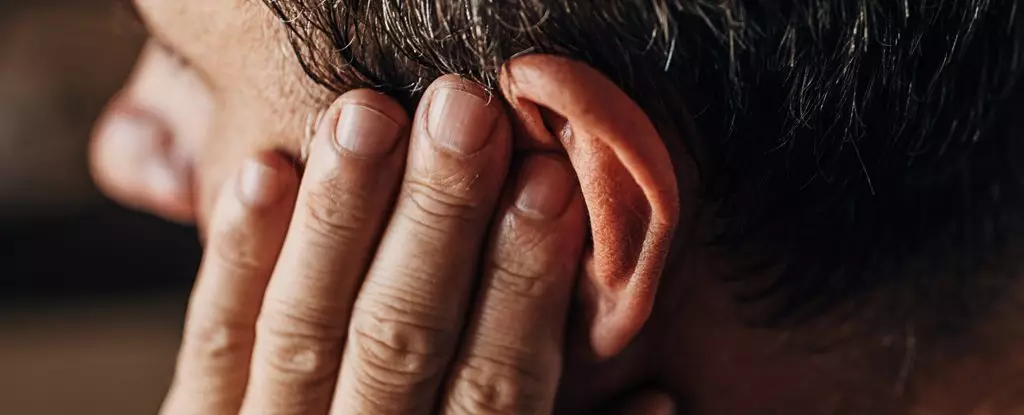Tinnitus, a condition marked by the perception of sound without any external auditory source, affects approximately 15% of the global population. This phenomenon often manifests as an annoying ringing, buzzing, or humming noise, particularly troubling for individuals who also face hearing loss. Beyond the auditory challenges, tinnitus can have significant effects on mental wellbeing, potentially leading to stresses such as anxiety and depression. Chronic exposure to these phantom noises, lasting for months or even years, can diminish quality of life and exacerbate mental health issues. Despite advances in medical research, there remains no definitive cure for tinnitus. Therefore, the exploration of alternative management strategies continues to be paramount.
Recent studies have begun to investigate the intriguing relationship between sleep patterns and tinnitus. The brain’s response to both conditions reveals a shared complexity worth exploring. At the core of this relationship is the notion of phantom perceptions, a state where individuals perceive sounds that do not exist in their immediate environment. Typically, such experiences are more common during sleep cycles, yet people living with tinnitus experience them while awake. This intriguing interplay suggests that understanding sleep mechanisms could offer insights into the management of tinnitus.
One significant discovery in this realm is that tinnitus appears to alter normal brain activity. Certain areas associated with auditory processing may become hyperactive, contributing to the sensation of sound in the absence of external stimuli. When individuals sleep, these brain areas also undergo fluctuations in activity. Therefore, studying the brain’s different responses during sleep could illuminate the connections between tinnitus perception and sleep disruptions.
Within the sleep cycle, slow-wave sleep (SWS) holds paramount importance. This stage of deep sleep is associated with restorative functions, allowing the brain to recover from daily wear and tear. During SWS, brain activity synchronizes in distinctive waves, activating extensive networks involved in various cognitive functions, including memory consolidation and sensory processing. Interestingly, research suggests that individuals with tinnitus may experience disruptions in SWS, leading to a predominantly lighter sleep state.
The lingering effects of tinnitus may hinder the brain’s ability to reach the restorative depths of sleep. This could explain why those suffering from tinnitus often report issues like night terrors and difficulty achieving a full night’s rest. The precarious balance of hyperactivity in certain brain regions, coupled with diminished deep sleep, results in a cyclical pattern of increased anxiety and decreased sleep quality.
Despite the challenges that tinnitus presents, some research indicates that certain aspects of slow-wave sleep may aid in suppressing the unwanted auditory sensations. It is theorized that when the brain enters a phase of slow-wave activity, the simultaneous involvement of numerous neurons could create a stronger impetus for regulating overactive brain regions associated with tinnitus. This collective neuronal response might temporarily alleviate the perception of these phantom sounds.
Moreover, during deep sleep, communication between hyperactive regions and those responsible for sound perception could experience suppression. This may enable a more peaceful restorative process, illustrating that while tinnitus impacts sleep quality, the protective mechanisms of deep sleep might occasionally counteract its effects.
As our understanding of the relationship between sleep and tinnitus deepens, new avenues of exploration open up, particularly regarding therapeutic interventions. Investigating fluctuations in tinnitus intensity relative to different sleep stages could provide crucial insights into how brain activity influences the persistence of the condition over time. Moreover, the emergence of novel treatments might stem from targeted approaches that enhance slow-wave sleep or mitigate sleep disturbances.
One practical pathway to enhance sleep quality involves sleep restriction paradigms. Patients could be encouraged to sleep only when genuinely tired, promoting a more restorative sleep cycle and potentially reducing tinnitus disturbances. As research continues, the integration of monitoring technologies that track sleep stages alongside tinnitus activity could yield groundbreaking discoveries.
By establishing clearer connections between brain activity during sleep and the perception of tinnitus, we could pivot toward managing this complex auditory condition more effectively, ultimately improving the quality of life for millions affected worldwide. This synthesis of knowledge underscores the necessity of continued research to unlock the mysteries of tinnitus, asserting that a collaborative understanding of sleep—and its profound impact—remains essential in the quest for relief.


Leave a Reply